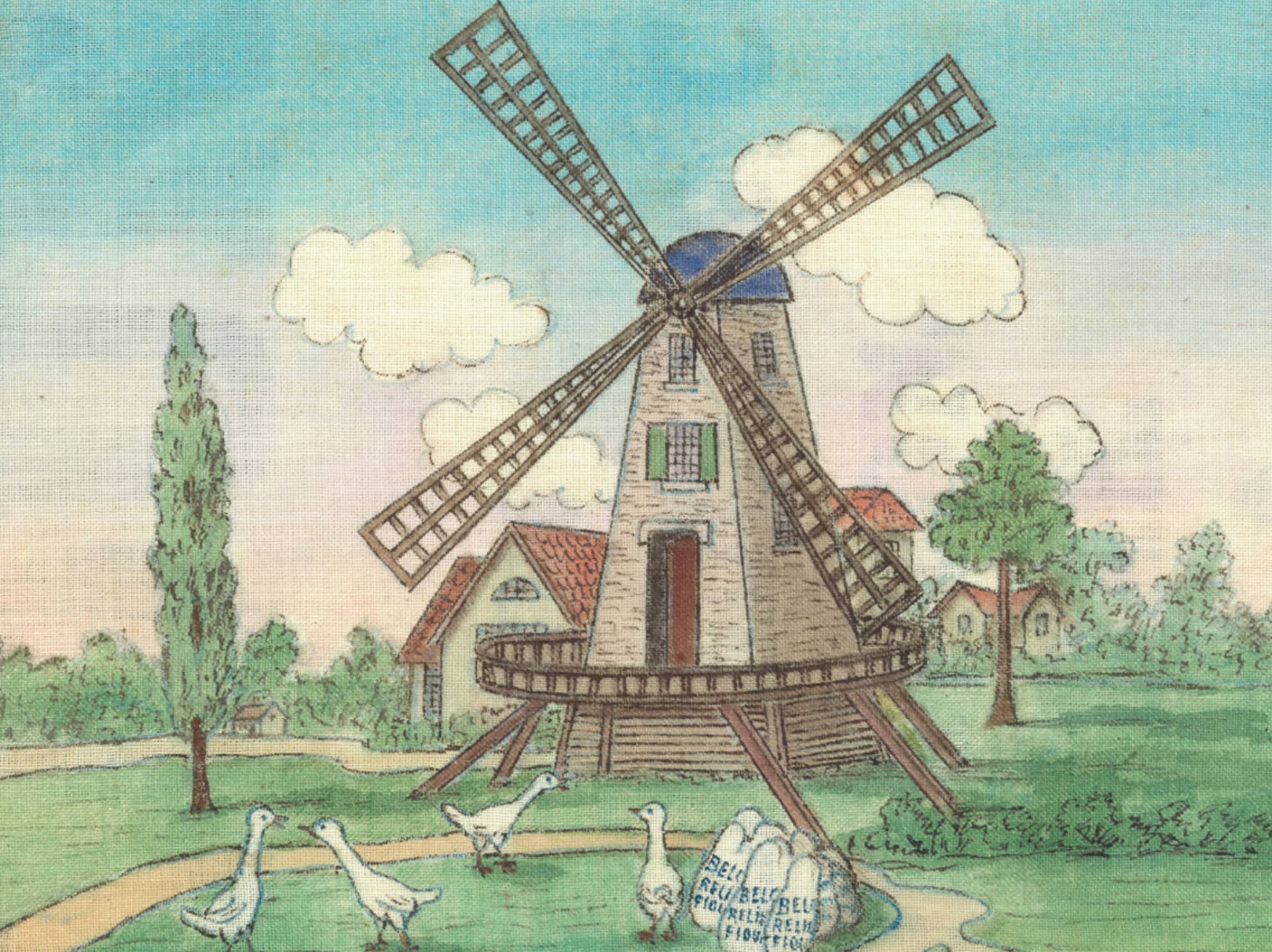
From Minnesota, with love
James Ford Bell, who later established General Mills and became the company’s first president, was a key figure in arranging food and flour shipments from the U.S. to people in Belgium and France.

Those shipments, from 1914-19, saved 10 million people in German Army-occupied Belgium and northern France. It’s still considered the largest humanitarian assistance campaign in world history. Much of it came from the flour mills of Minnesota.
The Commission for Relief in Belgium (C.R.B., also known as Belgian Relief) was an international organization led by U.S. Food Administrator Herbert Hoover, who would become the U.S. president in 1929.
During WWI, Bell was a vice president for our predecessor company in Minneapolis, Minnesota – Washburn Crosby. But the company released him in 1917 so he could serve out his appointment to Chairman of the Milling Division of the U.S. Food Administration.
He moved to New York City to devote his time to his government post.
Bell was involved with controlling the price of wheat and communicating with flour milling companies. He also accompanied Hoover on a European Food Mission from July to September, 1918. Bell returned to Washburn Crosby in 1919.
For his efforts with the C.R.B., Bell was made a member of the Belgian Order of the Crown and received the cross of the French Legion of Honor.
Though, in a letter to Hoover, dated Oct. 8, 1919, Bell humbly expressed that he felt he did not deserve any recognition.
“I am today in receipt of a Belgian Decoration,” wrote Bell. “I am fully cognizant of the compliment and appreciate the act of courtesy but at the same time, I notice it is made out with reference to the Commission for Relief in Belgium. Much to my regret, I was not connected with the C.R.B. and I do not see any particular reason why I should receive this recognition.
The C.R.B. shipped 697 million pounds of flour during WWI, as well as sugar and grains.
The cotton flour bags sent from America were carefully monitored. There was a great demand for cotton in the manufacturing of German ammunition. The C.R.B. also had concerns that the bags may be filled with inferior flour and resold as relief flour.
Empty bags were distributed to Belgium’s professional schools, sewing workrooms, convents and artists. Some people chose to embroider over the mill logo and brand name. Other crafters made entirely new images with stencils, paint and/or embroidery.
The General Mills Archives has two Belgian Relief Flour sacks, including one from the Pillsbury Flour Mill Co. in Minneapolis.
The sack, from 1916, is embroidered with the English phrase: “America’s ships come over the sea, Ye Flemish bells ring out with glee.”

The second C.R.B. bag in our archives is from Cavalier Milling Co. in Drayton, North Dakota.
The 1916 Cavalier flour sack has been embroidered in French that translates into “Turn, turn my mill! American wheat grind!”

The children of Belgium wrote letters of gratitude to America, including many to the children of the U.S. and to President Woodrow Wilson. A selection of these letters have been translated for the exhibit.
To bring an exhibit, titled “When Minnesota Fed the Children of Europe,” to Minnesota, Global Minnesota partnered with the Consulate General of Belgium, the Embassy of Belgium, the French American Chamber of Commerce of Minnesota, Mall of America, Wafels & Dinges, and Wallonia-Brussels International (WBI)
More Information
The exhibit will run throughout October at Mall of America (North side, Level 3), and then move to the Minneapolis-St. Paul International Airport.
Learn more about the exhibit, and connection to Bell, in “Thank-you letters from 1915 point back to unlikely hero.”
